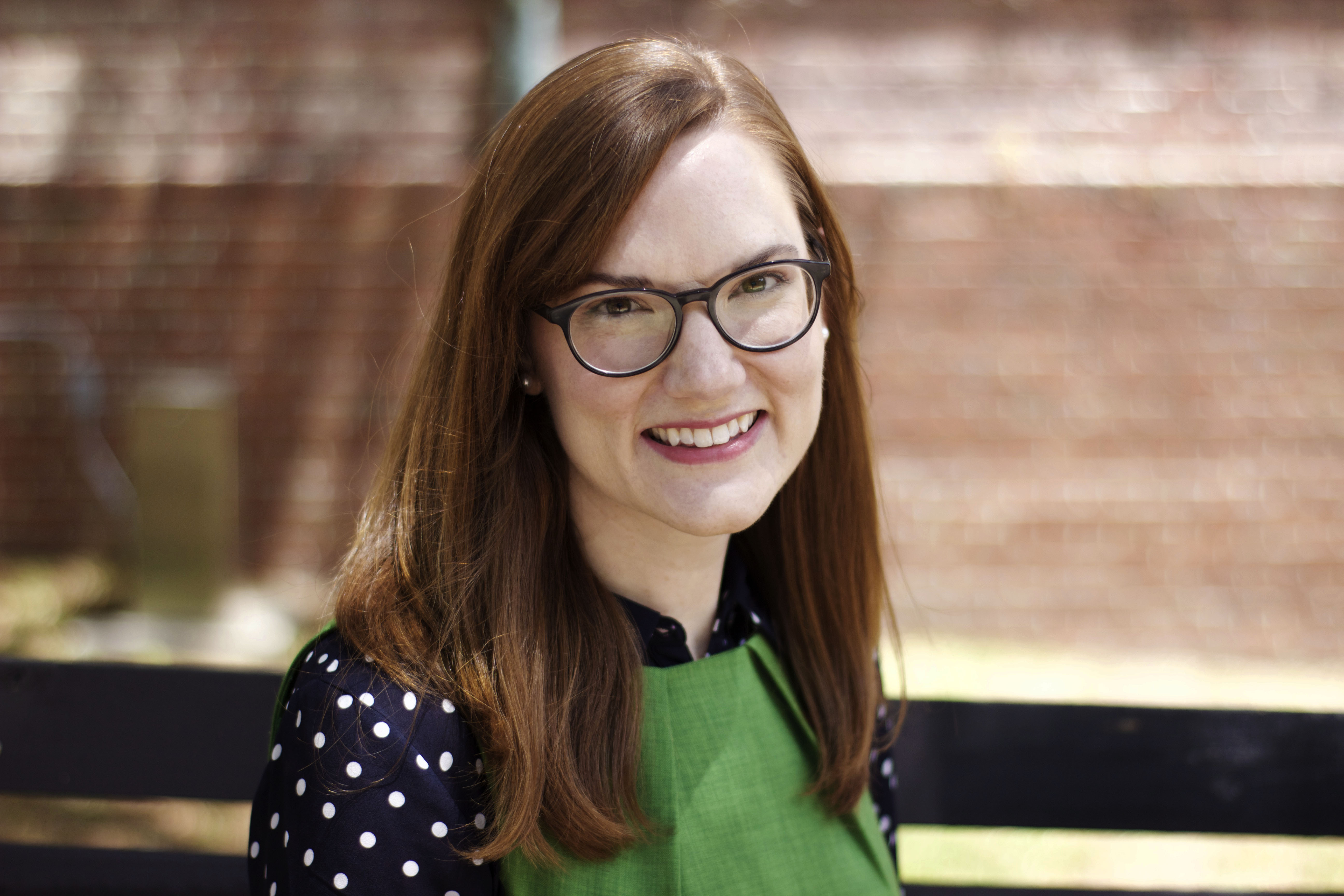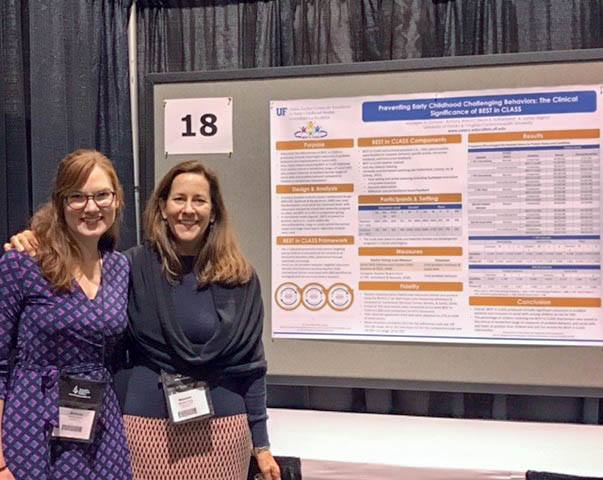Meet Brittany Werch, a sixth-year doctoral student in School Psychology from Jacksonville, Fla. Passionate about social justice and improving educational quality for diverse populations and children at-risk for school failure, Brittany works with Dr. Maureen Conroy on the BEST in CLASS intervention project. Brittany took some time out of her day to chat about her work at the center, and what drives her dedication to helping young children succeed.

Alexis Brown: Hi Brittany, thanks for agreeing to this interview! Can we start off talking a little about your background, and connection to early childhood?
Brittany Werch: I’m a long-time Gator; I went to undergrad here and currently, I’m in the School Psychology program, which is a part of the School of Special Education, School Psychology, & Early Childhood Studies. I also am affiliated with the Anita Zucker Center as a student member.
I always knew I wanted to do something with education, working in schools and helping students. It wasn’t until I started grad school that I focused in on early childhood research. I began working with Dr. Maureen Conroy and became interested in helping young children who are at risk for emotional and behavioral disorders.
AB: Why did you become involved with work in early childhood?
BW: I’m an avid supporter of prevention and early intervention. It just makes sense to me to put in resources and supports early in order to prevent greater difficulties later on. Plus, small children are the cutest!
AB: Can you elaborate on the BEST in CLASS project that you’ve worked on with Dr. Conroy?
BW: The main project I’ve worked on with her for the past five years or so is the BEST in CLASS: PK.
This is a tier 2 classroom intervention for young children at risk for emotional and behavioral disorders that consists of practice-based coaching for teachers. We help them increase targeted use of positive instructional practices: behavior-specific praise, rules, precorrection, opportunities to respond, corrective feedback, and instructive feedback.
We completed a four-year efficacy study, and currently there are studies for developing a web-based BEST in CLASS intervention and developing BEST in CLASS for elementary students — I’m helping with those, too. I’ve learned so much about conducting early intervention research in authentic school-based settings.

Brittany and Dr. Conroy give a research presentation on the
Center’s BEST in CLASS intervention.
AB: What’s something interesting about early childhood that most people don’t know?
BW: The brain develops most rapidly during the first five years of a child’s life. Early experiences and early relationships are critical and can have a significant impact on a child’s later success. Therefore, prevention and early intervention are necessary for promoting positive outcomes for all children, especially children at risk.
AB: What’s the coolest thing about your work at the Anita Zucker Center?
BW: I think the coolest thing is that I work with super smart, super dedicated colleagues who are doing great work to help children and families. I think having other people who find early intervention important and being able to collaborate with lots of different people toward the same goal of improving early childhood education has been the coolest.
AB: What’s a way that your work at the Anita Zucker Center has impacted your perspective about early childhood?
BW: My work in the Center and on BEST in CLASS has impacted my perspective on teacher professional development and increased my focus on teachers as important change agents in the lives of young children. I’ve learned how powerful high-quality professional development can be, particularly for teachers of children who experience risk conditions. Not only can it improve teaching quality, but it can enhance teacher-child relationships and promote child behavioral, academic, and social-emotional outcomes as well.
AB: What’s a challenge that you’d tackle for the benefit of children and families?
BW: I think my overarching goal is to improve the access to and quality of early childhood education, especially for children who are disadvantaged. I think I can best reach this goal by impacting teachers and improving their teaching quality through intervention, policy, and research. Although advancing early childhood education is a huge goal and influencing change will be challenging, the benefits to children and families far outweigh the costs. I can’t do it alone, but I have my talented, hard-working colleagues who are also dedicated to this mission.
Story and Portrait by: Alexis Brown
Special thanks to: Brittany Werch
